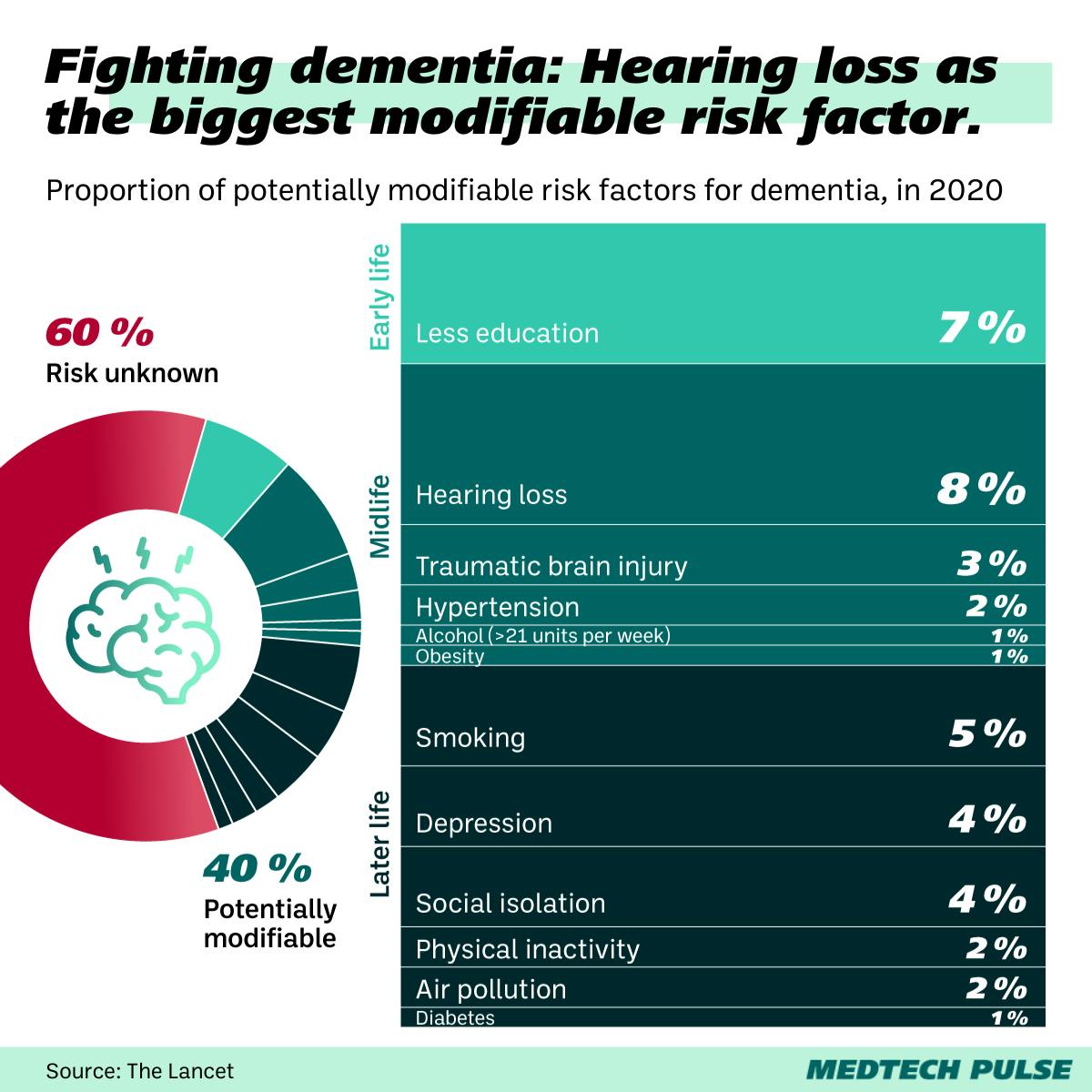Hearing loss can hasten dementia, but hearing aids may help slow it down
If you—or a loved one—have faced any kind of hearing loss, you’ve probably heard this. Physicians have long suspected a link between hearing loss and dementia.
But until now, there hasn’t been solid scientific evidence that treating hearing loss can actually help slow the onset of dementia.
Enter: The ACHIEVE Study at the NIH. This randomized controlled trial is shaping up to be a landmark study, enrolling nearly 1,000 adults between the ages of 70 and 84.
And the newest results published in The Lancet are staggering. In the group considered at higher risk of dementia, participants who wore a hearing aid had 48% less cognitive change after three years than those who didn’t.
So, have we solved the problem of dementia? Not quite. But let’s take a look at how these findings are already changing the game for geriatric care.
The connection between dementia and hearing loss
Of course, hearing loss isn’t the only known risk factor for dementia onset. But it’s one of the biggest potentially preventable ones—if not the biggest.

“I’d hear, ‘oh, someone’s getting older, they should get their hearing treated,’ but it was just lip service,” said Frank Lin, a principal investigator of the study and a professor at Johns Hopkins Bloomberg School of Public Health. “I realized there wasn’t much progress being made because some of those basic questions weren’t answered.”
Researchers suspect that the reason behind this connection is something like a preoccupation of the brain. In other words, as the brain struggles to hear, it may have less capacity for cognitive processing. The brain also literally shrinks faster as it absorbs less sound.
Another pathway to this connection? Social isolation.
We’ve discussed the dangers of the loneliness epidemic before. Hearing loss if one of the many risk factors there, too. Losing one’s hearing contributes to social isolation, leaving elders less cognitively engaged and susceptible to cognitive decline.
What does this mean for the hearing aid market?
Worldwide, over 55 million people are living with dementia. As the population continues to age, that number is growing.
But so is the number of people who don’t have dementia yet. These are the people who can benefit from the systematization of the hearing aid intervention.
But we don’t expect this news to make the hearing aid market go gangbusters.
The connection is a bit more complicated than that. In the ACHIEVE study’s latest findings, the hearing aids didn’t appear to make a measurable difference in cognitive decline in the general study group. Where they made a difference was for the group considered at higher risk of developing dementia.
“People who don’t necessarily have cognitive decline or those risk factors can say, ‘Oh, OK, if I waited two more years, this isn’t going to do me a disservice,” UCSF Chief of Audiology Rebecca Lewis said. “But those people who really do have cognitive deficiencies need to make sure this is top of mind.”
These findings are also bound to be a positive signal for hearing aid market newcomers. And we don’t just mean hearing aid startups like Olive Union or Eargo. Big wearable device players like Apple are positioning their earphone tech as a hearing aid alternative. With or without this news, hearing assistance has big market potential. This is especially true since the FDA opened the over-the-counter hearing aid floodgates this past fall.
The other caveat we need to contend with here is that the devices used in the ACHIEVE study weren’t just regular hearing aids. This was top-of-the-line audiology tech, supplemented with regular clinical audiology check-ups.
“It’s not just a ‘let’s plug in some hearing aids and send you on your way,’” Lewis said. “Would this same approach hold if that group of people had over-the-counter hearing aids without that interaction with an audiologist? I’m not convinced that would be the case.”
Overall, if you ask us, the path to preventing neurodegenerative diseases like dementia is a worthwhile journey to take. The wins along the way may not be all-encompassing, but if we can give even just a handful of people the gift of a healthier future, we think it’s worth it.